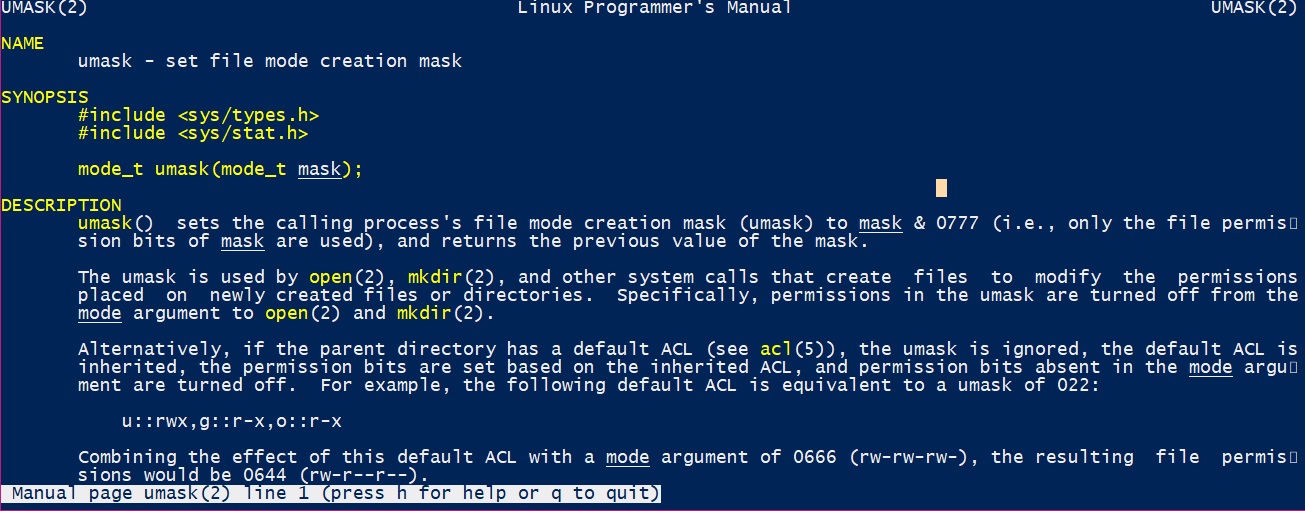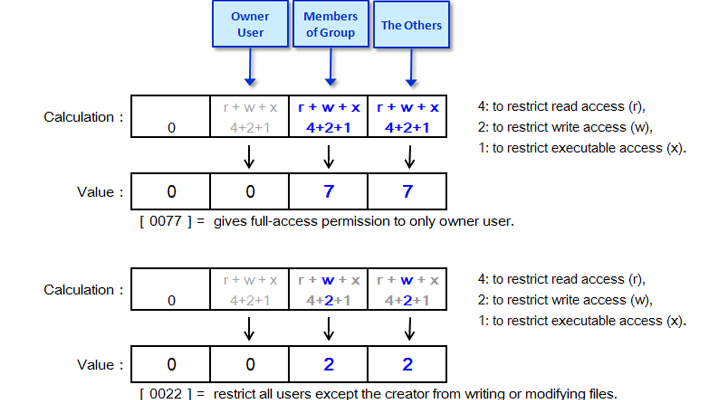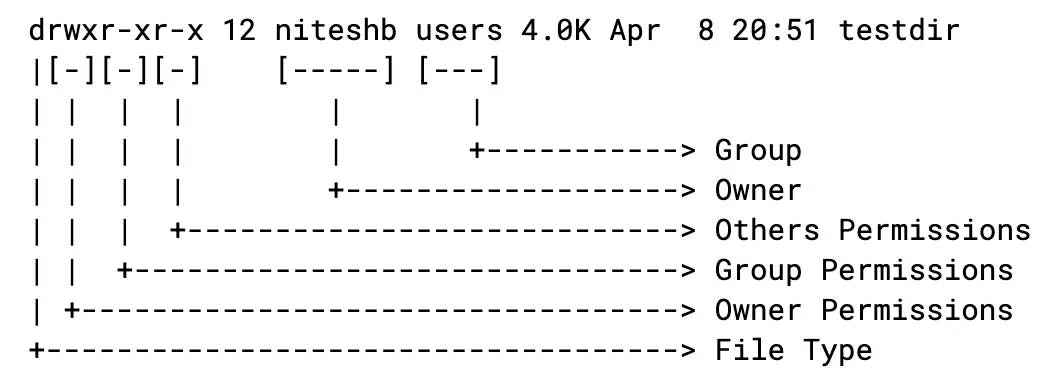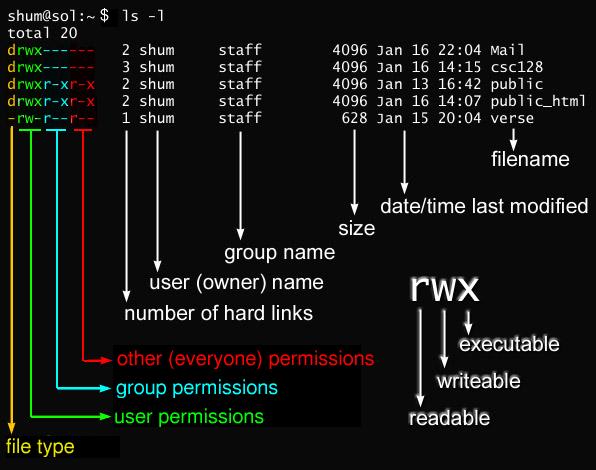Supreme Tips About How To Check Umask

From a terminal session, enter the following command:
How to check umask. Running the umask command by itself provide the default permissions that are assigned when a file or folder is. That’s a default, as you can see, looking from the left, the user that has created the file (root for me) can read and write the file, the group (root) can only read it and all the others can read the. Either numeric or symbol output.
To determine the umask value you want to set, subtract the value of the permissions you want from 666 (for a file) or 777 (for a directory). Checking default umask value in linux. Umask sets the mask applied to newly created file and directory permissions.
To view your system's current umask value, enter the command: The remainder is the value to use with the umask. To calculate the umask value, simply subtract the desired permissions from the default one:
If you want to check default umask value in linux system just type “umask” command. First you need to check the current umask values by running umask command as shown below. To produce symbolic output, enter:
In this method, umask will changed only when the session is active. Here, the first digit, 0 is called the sticky bit, it is a special security feature. The remainder is the value to use with the umask.
To determine the umask value you want to set, subtract the value of the permissions you want from 666 (for a file) or 777 (for a directory). The desired umask value represented in numeric. To view the current umask value, we use the umask command.
The screen displays the following values: Permission octets mean the following. The intention is to subtract the umask number from the base permission to get the actual file permission.
Then, create a new login shell to become the new user:


















